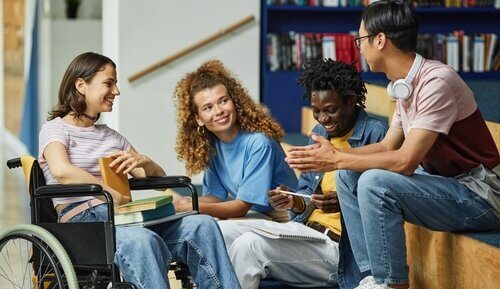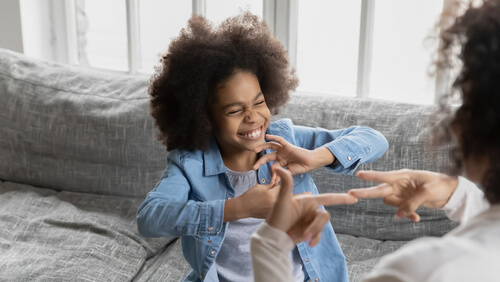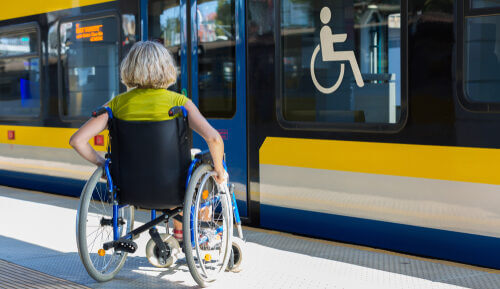
Accessibility and inclusivity in dating
Dating uses a lot of interpersonal skills, from picking up that somebody’s romantically interested to flirting to managing rejection from either party. Even tasks like arranging the perfect date can be hard.
People with disabilities can face extra challenges on top of this, such as:
- Finding accessible venues. As well as wheelchair accessibility, things like loud music and busy places can be overwhelming for some people with disabilities such as autism
- Understanding social expectations and unspoken ‘rules’
- Needing/preferring somebody there to support them
- Stigma from others
- Meeting people who can see further than their disability
- Eating and drinking food outside their usual diet or finding food they are physically able to eat
The Undateables
In recent years, popular TV shows such as Channel 4’s The Undateables and ABC TV’s Love on the Spectrum have highlighted the importance of inclusivity in dating. These shows have faced scrutiny, with some concerned the public are laughing at the people who take part, but most view the shows as a celebration of diversity, inclusivity and of the unique people who take part.
These shows, as well as fiction such as the BBC’s Ralph & Katie, have also raised awareness of the fact that people living with disabilities do date and get married.
They have better informed people of the challenges that people with disabilities can face in dating; The Undateables in particular features people with a wide range of disabilities, from autism to Tourette’s to narcolepsy.
They have helped many real people to find love, including Daniel Wakeford, who is autistic and a singer/songwriter and Lily Taylor, who has a learning disability.
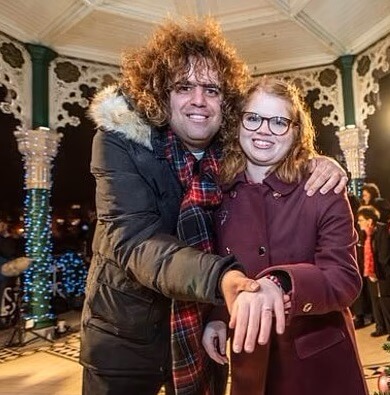
They met in 2017 and a year later got engaged. In 2021, Daniel revealed on TikTok that the couple had split up but were going to remain “friends”, saying “me and Lily are always being romantic for the last three years, but we decided to end our relationship together”.
Christine and Ray were another popular couple.
Both have learning disabilities and went on a romantic trip to the Isle of Wight with Christine saying: ” ‘I don’t mind where I go as long as I’m with Ray, it means much to me, wherever I’m with Ray I go. Cause I love him to pieces he’s a special man.”
Where can I meet people?
Social groups
Disabled people can go to parties, bars, restaurants and nightclubs just like anybody, and there are plenty of local groups you can get involved with based on your interests, from sports to handicrafts to people with passions for certain genres and franchises. You can find out what’s on in your area in community newspapers and apps like MeetUp.
Groups specially for people with disabilities
Some people with disabilities prefer more accessible places to socialise and meet potential love interests. There are groups and activities specially for people with disabilities all over the UK. Luv2meetU is a friendship service for adults with learning disabilities or autism. Run by learning disability charity Hft, members can take part in a wide range of online and in-person meet-ups, activities and days out.
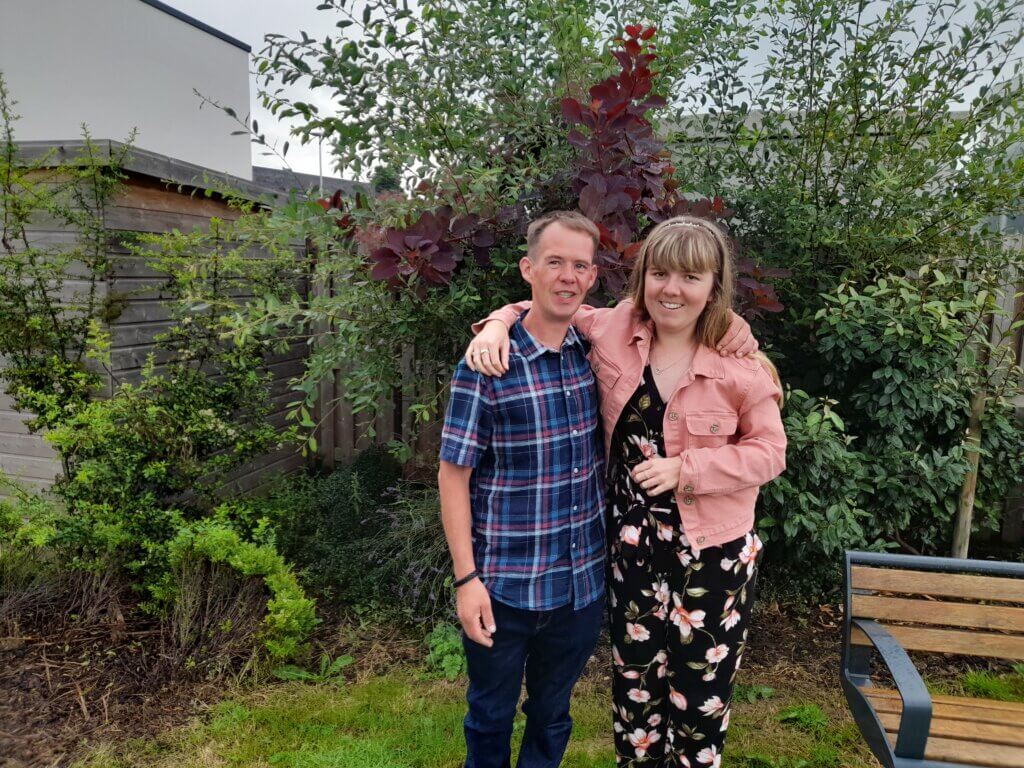
Mags, 24 and Kieran, 32, met at a Luv2meetU (L2mU) social event three years ago.
“We started off as friends – I thought Kieran was kind and caring,” explains Mags.
“I liked Mags as soon as I met her. She’s kind, caring, helpful and fun,” enthuses Kieran.
The couple, from Denbighshire, North Wales, have now been together for two years and are very happy. They credit L2mU for their having met and they continue to enjoy the service.
Mags says, “I love having more friends and being more social. I have more friends now than I’ve had before, and trying new things at events help me to feel more self-confident.”
Looking ahead, Kieran says, “We’re happy living as we are at the moment but I’d like to move in together in the future.”
Chelsey Roberts, Hft’s Community Coordinator, says: “For Mags and Kieran, L2mU played a vital role as, without it, they simply wouldn’t have met. They live in separate counties and were both quite socially isolated before this, so L2mU really did play the leading role in their relationship.”
Dating websites
As well as popular dating websites like Tinder and Plenty of Fish, there are websites specifically for people with disabilities, such as Disability Match and Disabled Dating.
You aren’t required to disclose your condition on mainstream sites like Tinder unless you want to, so some people prefer them. You may find it works better for you to tell potential dates straight away, or to leave it until much later once they’ve got to know you as a person, particularly if your disability is invisible.
Group holidays
There are organisations that arrange group holidays for people with disabilities or who are in need of extra support. These holidays offer accessibility, respite care and support from professionals or volunteers and the chance to see new places and meet new people.
One such provider is national charity Revitalise. Revitalise is a crucial lifeline in the disability and care sector, giving those who might otherwise struggle to engage in social activities the much needed chance to simply have fun with others on a supported break or holiday.
Dating skills and confidence
Dating can be tough and it’s normal to struggle to stay confident and resilient in the search for love. As well as getting to know each other, communicating effectively is important for understanding how a date is going to be about your disability. Will they value who you are as a person as well as give you support where you need it? Will they be open minded and eager to learn?
Nobody wants to be used or treated badly. Having the confidence to value yourself and what you have to offer a potential partner is important and may take time to build up, but practice makes perfect.
Tracey advises: “I’d say it’s good to chat with someone over Facebook first and then meet them in person. Go out to activities like bowling, respite and quizzes. Go with a friend or carer at first so you’re not alone.”
Carl says: “Just talk to people and communicate with them. I would say just go and do it because otherwise you won’t get the chance. They’re all different people each time when you go on holiday to Sandpipers. Sorry for the expression, but you’ve just got to bite the bullet.”
Resources and workshops to help with social skills
The social skills needed for dating can take people with some disabilities a bit longer to learn, especially things like flirting and picking up signals that the other person is interested (or not).
User-led charity Enhance the UK has a variety of resources for people with disabilities who are looking for love, including:
- Disability and Sexual Expression Training; more information here
- The Love Lounge, where people with disabilities can get confidential advice on love, sex and relationships
Charity Guideposts runs Fear-less, a course for people with learning disabilities and autism that teaches skills for making new friends and relationships.
American sites like Radiant Abilities and US dating site Special Bridge have great advice on dating with a disability that translates well across the pond.
